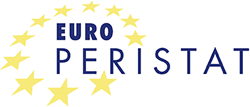
Why monitor it?
Promoting healthy pregnancy and safe childbirth is a goal of all European health care systems. Despite significant improvements in recent decades, mothers and their babies are still at risk during the perinatal period, which covers pregnancy, delivery, and the postpartum. Babies born too early are more likely to die than those born at term. They are also more likely to have neurological and developmental disorders that carry long-term consequences for their quality of life, their families, and for health and social services. The same is true for babies born with severe congenital anomalies. Many of them have important medical, social, and educational needs. Stillbirths have not decreased to the same extent as neonatal deaths, and their causes remain largely unknown. Maternal deaths are rare but tragic events, particularly because a significant proportion of these deaths are associated with substandard care.
In recent years research has also found connections between perinatal health and chronic diseases of adulthood. Babies born too small as a consequence of fetal growth restriction are more likely than others to develop diabetes and metabolic syndrome as adults. Other implications for adult health of adverse events during pregnancy are currently being explored. These relations make the monitoring of perinatal health outcomes more important than ever.
Euro-Peristat Indicators of Perinatal Health
To improve outcomes, we need the right tools to assess perinatal health problems and their causes. We also need to monitor the impact of policy initiatives over time. As a first step towards providing Europe with such a tool, Euro-Peristat has released several European Perinatal Health Report. These reports bring together statistical information on the characteristics, health, and health care of pregnant women and their newborn babies in countries participating in our network.
Building a Sustainable Network
To improve perinatal health, we need the right tools to assess problems and their causes. We also need to monitor the impact of policy initiatives over time. The European Perinatal Health Reports are a first step towards providing Europe with such a tool, as are our many publications on our perinatal health indicators.
Data to construct the Euro-Peristat core indicators are available in almost all countries, but there are still many gaps. Many countries need to improve the range and quality of the data they collect. Many countries have little or no data on maternal morbidity, care during pregnancy, and the associations between social factors and health outcomes.
To build up a picture of changes over time, reports need to be repeated. Euro-Peristat aims to develop sustainable perinatal health reporting. The full value of having common and comparable indicators in Europe will be realised when this exercise becomes continuous and assessment of progress is possible.
